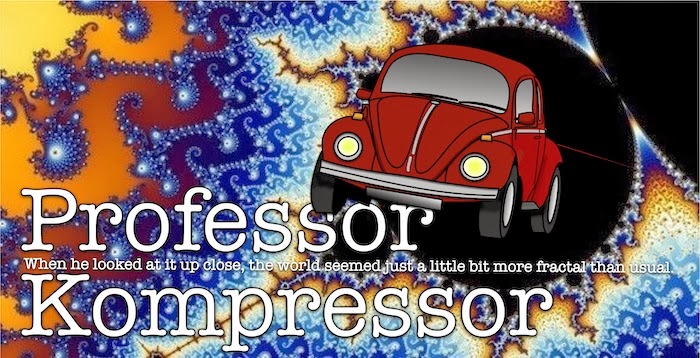So you think you’re original?
Depending of what you are up to, originality may be
something to aspire to but how likely do you think it is that an idea or
concept is truly new? Not very, is the obvious answer. I had the pleasure of
discovering this quite recently. And it really was a pleasure. I am not being
sarcastic.
What on Earth am I on about?
Well... having written a set of short stories involving a
bumbling Professor/inventor that seeks inspiration from science, I was curious
to find out to what extent this part of the literary landscape had been
explored before. I won’t go into stuff I was already aware of, as I want to
focus on what I discovered in the process. After some googling and random
internet browsing (truly professional “research”!) I stumbled on a series of
kids books by Jay Williams and Raymond Abrashkin. The hero of these books, which
were written in the 1950s-60s, is a boy called Danny Dunn. Danny is very keen
on science, and he is fortunate enough to live with the very clever Professor
Bullfinch. The Professor is a great inventor (uh, where have I heard that
before?) that comes up with all sorts of schemes, usually leading to Danny and
his two friends Joe and Irene having some kind of madcap adventure. There are,
I believe, 15 Danny Dunn books in total, all now out of print. When I first saw
the list of titles I was astonished. My own short stories had covered about
half of the themes! Yes, some were obvious (like time travel) but nevertheless.
Naturally, I ordered a couple of second hand Danny Dunn
adventures. They arrived, I have read three so far and I am now a fan. This is
great stuff. Why? Surely the world has moved on in the past 50 years and
anything that was modern in those long gone days is boring old nonsense now?
Well... in a sense yes, but good storytelling still has the power to keep your
attention. There is another side to it, as well. Science may have moved on, but
this does not mean that the actual ideas have changed much and sometimes there are
funny and unexpected connections.
Let me give you an example.
In the story “The voice from space” Danny and his friends
travel to England to use the fictitious Grendel radio telescope to listen to
signals from intelligent life in outer space. (This is a theme I have been
thinking about, but I haven’t managed to find the right angle yet.) The story
is clearly inspired by the early days of what eventually became the SETI
programme.
I am not going to spoil the story by telling you what
happens, but I would recommend the book to anyone that is keen on radio
astronomy and needs to find some suitable reading material to corrupt their kids.
Instead, I want to make an observation. The Danny Dunn book was written in
1967. It came out just a few months before... guess what? A young PhD student
named Jocelyn Bell found some odd periodic signals in data from... What? A
radio telescope. Initially the new objects were referred to as LGM (Little
Green Men) but soon so many of them were found that they needed a proper
scientific name. They became known as pulsars, and we now know that they are
the remnants of dead stars. These are fascinating objects, and if we want to
understand how they work we need to push the boundaries of known physics. I
find this seriously cool.
Anyway, I can’t help wondering if Danny Dunn would have
had a different slant to his adventure if Nature’s own Little Green Men had
been discovered just a couple of months earlier...
